Linear approximation, critical points, min/max problems
advertisement
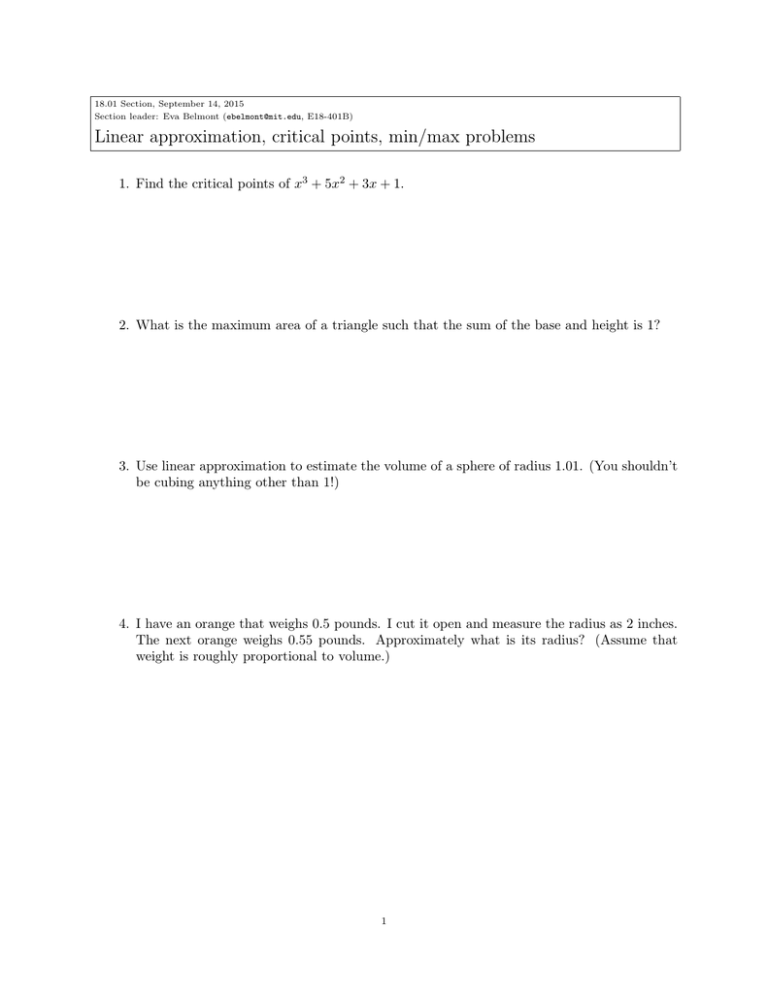
18.01 Section, September 14, 2015 Section leader: Eva Belmont (ebelmont@mit.edu, E18-401B) . Linear approximation, critical points, min/max problems 1. Find the critical points of x3 + 5x2 + 3x + 1. 2. What is the maximum area of a triangle such that the sum of the base and height is 1? 3. Use linear approximation to estimate the volume of a sphere of radius 1.01. (You shouldn’t be cubing anything other than 1!) 4. I have an orange that weighs 0.5 pounds. I cut it open and measure the radius as 2 inches. The next orange weighs 0.55 pounds. Approximately what is its radius? (Assume that weight is roughly proportional to volume.) 1 5. I need to make a closed box of volume 1 cubic foot. I require it to have a square base. Box material has a fixed cost per square foot. What dimensions should I use if I’m trying to minimize cost? 6. Find the tangent line to x3 + x2 + x + 1 at the point x = 1. 7. Use linear approximation to estimate √ 4.1. 8. Bonus question: We’ve talked about the linear approximation to a function f at a point a: this is a linear equation `(x) such that `(a) = f (a) and `0 (a) = f 0 (a). Can you come up with the quadratic approximation to f ? Review d n n−1 dx ax = anx where f 0 (x) = 0 • Derivative of a polynomial: • Critical points: points • Linear approximation of f near a: • Tangent line to f at a: • Newton’s method: (also works where n is a fraction) f (x) ≈ f (a) + f 0 (a)(x − a) f (a) + f 0 (a)(x − a) xn+1 = −f (xn ) + xn f 0 (xn ) 2
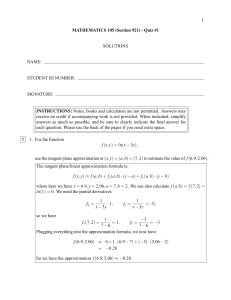
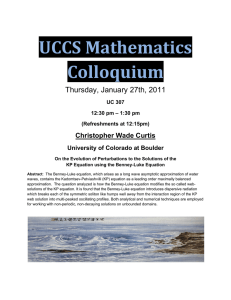
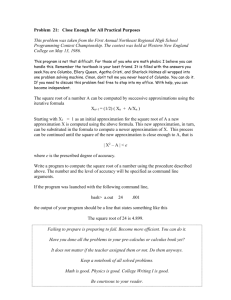
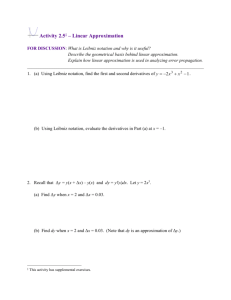
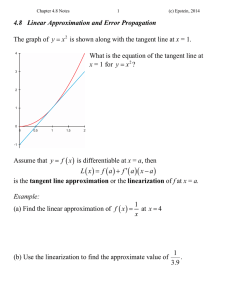
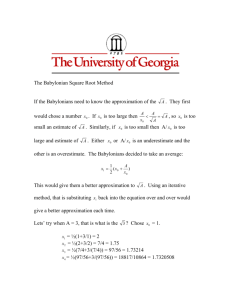
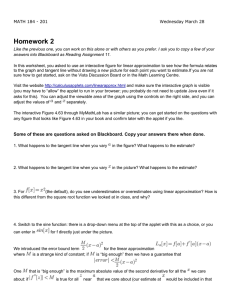
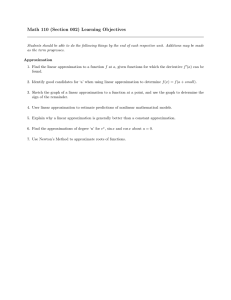
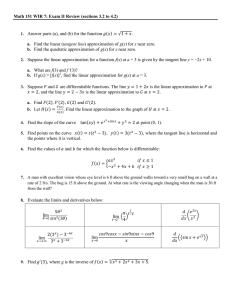
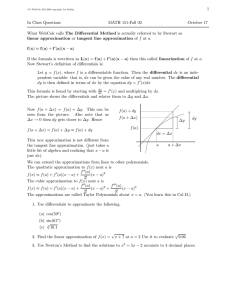
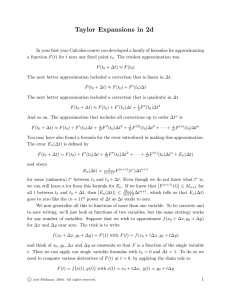
![2E1 (Timoney) Tutorial sheet 6 [Tutorials November 15 – 16, 2006]](http://s2.studylib.net/store/data/010730333_1-411ddd9efaadd090d0676437760af2a2-300x300.png)